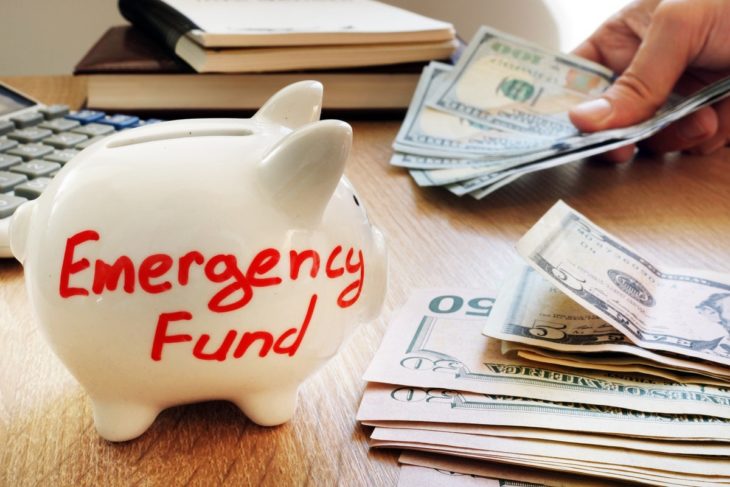Ready to leave the nest and fly on your own? Moving out is a big step for any individual, especially for those who have lived in the comfort of their family home and in the arms of their relatives who made sure your needs are satisfied. But when the time comes that you want to try and live alone, in your own place, you should be well-prepared. And one thing you should prioritize is your finances.
So what funds do you need to set aside when you decide to move out? Read on to find out.
Contents
Budget

Source: Mum’s Money
If you’re used to just taking food from the shelves because they’re always stacked, it’ll be good to start managing your expectations. The cupboards will no longer magically be bursting to the brim unless you decide to fill them up with items you got within your budget.
Have a detailed budget for your expected adjustment period. The more notes it has, the better, as this will help you understand your money allocation. Creating a budget for at least the first month is advisable.
Before you move out, try to live with the budget you made for at least a month or two and make the necessary adjustments. This is so you don’t get surprised when you decide to do the real thing.
Expenses
Now that you’re alone, what expenses should you cover?
Fixed expenses

Source: Money Crashers
Fixed expenses are those that you can’t avoid spending money on because you need to pay them, whether you like it or not.
- Rent:
- Rental Fees
- Security or Rental Bond. It’s the security deposit you pay before you move in. You can have it back once you stop renting, as long as you follow the contract’s terms and conditions.
- Renter’s Insurance Premiums. It’s a special policy that protects your property against damages from unforeseen events such as fire, theft, or storms.
- Move-in Fees. Some landlords ask their new tenants to pay for the touch-ups of the place. It’s different from security deposits.
- Permits, such as those for parking or pets.
- Utilities
After making sure that you have already updated your address, these are the bills you need to take note of:
- Internet
- Electricity
- Water
- Gas
- Phone bill
- Subscriptions
- Memberships
Change or cancel memberships that will not work with you anymore come the day of your move, such as:
- Gym or local clubs
- Healthcare
- Insurances
- Transportation
Take into account the monthly travel card expenses or the car fuel costs.
- Food
Plan your food budget according to your actual needs. You can ask the person currently responsible for these costs for advice.
Necessary, But Unexpected Costs

Source: MensLine Australia
You never know what could go wrong during the move, so be prepared for the unexpected costs.
- Moving Costs
- Movers or removalists
- Truck or van hire
- Packing boxes
- Installation costs
- After-the-move expenses
- Extra bolts, nails, etc. while you design your new space
- Any repairs that might be needed
Extra Expenses
Moving is a lot of work, so having a rest is also essential. Set aside a part of the budget for entertainment or recreational activities but make sure you cut back on these.
You can minimize your expenses if you’re sharing the space with someone, such as a flatmate or a roommate. However, you need to make sure that the costs split between you are transparent and just.
Income

Source: Medium
Do you have the means to pay those expenses? You can cover your costs by either your savings or your earnings.
But it’s better to have income. If you don’t expect to ask for support from your parents or other relatives, you should have a steady stream of income.
Other landlords will also ask for their tenants’ income to guarantee that they can pay the next rental fees.
Emergency Fund

Source: The Motley Fool
Don’t forget to have something to put into your emergency fund! Especially now that you start to live alone, you should be prepared for any emergencies.
An emergency fund, or EF, is the equivalent of all your fixed expenses for at least three months. Others will even save up to six months’ worth of their fixed expenses, so if they suddenly lose their job, they have the means to go on. It’s also for other surprise expenses you might find encounter, so you can avoid taking out loans or asking help from your relatives.
If you don’t think you can save up to three months’ worth of fixed expenses, you can start with a smaller fund. There’s no rule in creating an emergency fund. You can begin with $1,000 or more. The important thing is that every time you receive money, you save a little.
You can follow the 50-20-30 rule or separate your Emergency Fund first when you get your income before deducting your expenses. It should be:
Income – Savings = Expenses and not Income – Expenses = Savings because there will always be expenses.
Debts

Source: dollarnomics
It’s better if you don’t have any debts when you begin your independence, but if somehow you have incurred a debt, bear in mind the considerations of this added factor.
How much is your debt? Research your payment options and learn about them. Then answer the question: Is it better to pay them first with your savings or take a loan?
Loans are advantages too, especially in your financial independence. They are also easy to acquire, with fast processing such as that of paydaydepot.com.
Another vital thing to know is your credit score. Don’t hurt your score, and always pay your bills on time.
Ready to Move Out?
Set your ground rules and be ready to change habits that impact your budget negatively. Living alone is very different from when you have others to share expenses with.
It’s not only finances that you should be concerned about but also your relationships with people. Ensure you keep your connection to your family and friends while trying to adapt to the other people you’ll share the room with or the building with. It’s also best to have a good relationship with your landlord and neighbors.
